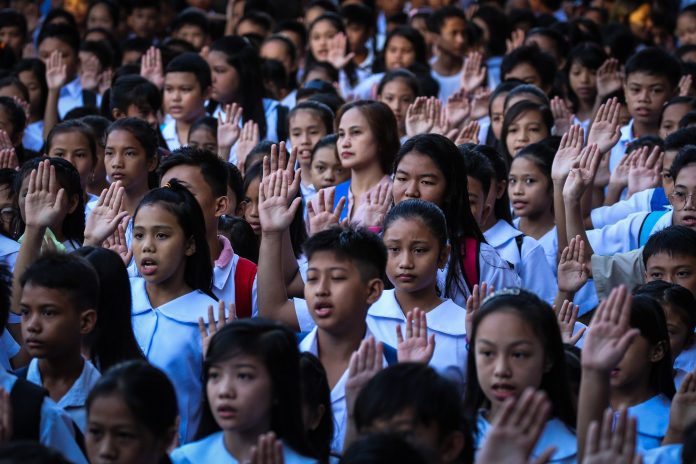Save the Children Philippines (SCP) said that over 26 million enrolled students in the Philippines are affected by climate change.
This situation reflects the Philippines’ top ranking not just in the World Risk Index 2022 but also in the Child Climate Risk Index in the East Asia and Pacific region.
“In the past four years, we have experienced changes in the school calendar and mode of delivery due to the pandemic and to adapt to the changing climate, on top of all the class suspensions due to frequent typhoons. We are yet facing another calendar shift due to El Niño,” said Rohj Olivo, a 17-year-old advocate for SCP’s Generation Hope campaign against climate change and inequality.
Among the problems SCP mentioned are the intolerable heat from the El Niño, more powerful typhoons, and limited access to water. These affect the children’s health, nutrition, and education.
“Our argument is clear: in the midst of climate change, government action should ensure that we have uninterrupted access to quality education, and to effectively solve this problem, leaders must not only listen to children and youth’s voices but also heed our wisdom, for it is our future that hangs in the balance,” Olivo said.
In September 2023, the United Nations Children’s Fund (UNICEF) urged the Philippines to take immediate action on climate change, stressing that it is also a “child rights crisis.”
“Governments must protect the rights of every child, especially boys and girls living in countries that have contributed least to this problem but are enduring the most dangerous floods, storms, and heat,” UNICEF Philippines Representative Oyunsaikhan Dendevnorov said in a statement.
Calling for government responsibility, especially in this time of extreme heat, the Alliance of Concerned Teachers (ACT) Philippines urged the Department of Education (DepEd) and local government units (LGUs) to conduct safety inspections in schools, assess fire and safety hazards, and address urgent school needs and perennial classroom shortage.
“The possibility of fire in the schools is alarming, especially in this time of extreme heat. Most of the classrooms only have one to two electric fans so it might be used for the whole day, which can overheat,” ACT Philippines said in a statement.
As of this writing, the highest heat index in all regions of the Philippines ranges from 42 to 43 degrees Celsius.
“We also support recommendations from teachers to alleviate the grueling heat in classrooms. This includes allowing teachers and students to dress in lightweight, comfortable clothing suitable for hot weather, providing free water to stay hydrated during the day, ensuring enough health personnel to give medical attention in case of emergencies, and implementing flexible learning modalities like asynchronous classes to reduce exposure to extreme heat,” ACT Chairperson Vladimer Quetua said.
One model for this is also the implementation of Comprehensive School Safety (CSS) Ecosystems and Quality Assurance System (QAS) programs of SCP in over 21,000 schools and 12,000 barangays to “ensure that children, schools, and communities are climate-literate, responsible, and resilient to the inevitable impacts of climate change.”
ACT urged the government to implement long-term solutions such as the construction of enough classrooms with proper ventilation and reverting to the old school calendar that is more suitable and beneficial to education, given the detrimental impacts of summer classes on education quality and health of teachers and learners.
SCP is also actively advocating for the implementation and localization of Republic Act 10821 or the Children’s Emergency Relief and Protection Act, setting standards of accountability to children in the protection and provision of their needs before, during, and after a disaster.









